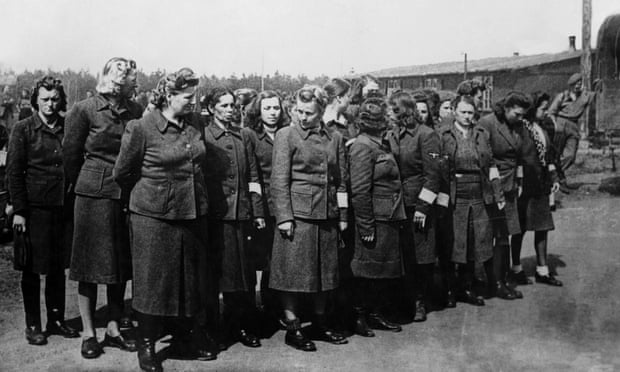What is testimony? Why testimony?
To try to answer these questions in 10 minutes is foolhardy to say the least, but, since we are about to hear Harry Bibring’s story, I thought it might be useful to think about why we should even ask survivors to relive some of the most terrifying and distressing moments of their lives.
So this is the big question for testimony: why would you ask a survivor to do this? Is this something we do for us? And why are we putting our needs before those of the survivors? We know, of course, that listening to personal accounts is both instructive and that it helps us to start to make sense of the atrocities. We know that people often find it easier to identify with a single human perspective than with documentary and quantitative evidence. Perhaps, then, the real reason we continue to ask survivors to talk to us, is that we want to know. We are desperate to make sense of what happened, not because of any morbid attraction to the horrors, but because we are desperate to learn to see the signs elsewhere, to recognise warning signs in our own culture, perhaps, or perhaps even to experience the past as a safe and distant place that can no longer affect us. Either way, when we hear from a single survivor, we hear something about ourselves. It is this tendency to identify that, I think, marks what is quite distinctive about our own age’s understanding of testimony.
It might help to bring some historical perspective to these questions. It is fair to say, I think, that, among Holocaust scholars, there has raged for the last few decades at least, a certain fascination for testimony. Countless scholarly papers ask what testimony is, how it comes to us, how it is mediated by time, technology, and memory. And yet, it should be recognised that the current craze for testimony (and not just in Holocaust scholarship) is actually quite recent. In the immediate aftermath of the Holocaust, during the so-called Nuremburg process, for example, there was a consistent and anxious squeamishness among legal functionaries about the use of testimony. Testimony was certainly used. Indeed, it was a key element of the prosecution’s evidentiary toolbox, but it was not central to the trial, and in many cases, testimony was deemed unreliable, unhelpful or even irrelevant.
Moreover, many Jewish survivors who made it to Israel were met with the accusation that they had allowed their compatriots to go “like lambs to the slaughter”. There were accusations Jews were defeated because of their weakness, and Yiddish, the language spoken by most of the victims of the Holocaust, was mistrusted and looked down on as a jargon, the language of the losing side. And so, survivors turned inwards, and felt unable to share their stories or to talk about their experiences.
In some very telling ways, it was the Eichmann trial in Jerusalem in 1961 that changed the meaning and centrality of testimony in the legal process of bringing the Nazis to justice. Here, countless witnesses lined up to support the prosecution’s case against Eichmann. Their testimonies were emotional, shot through with anger, despair and resentment. And also, with an extraordinary resilience and presence of mind. Here, then, emerged what many have since termed a “muscular testimony”, a new way of telling these stories that are meant to bring about justice. Justice here stands for an unburdening, an unloading and a putting of things back in their proper place.
After the Eichmann trial, Jews in Israel and in the diaspora more broadly (the trial was widely televised) felt able to discuss their experiences, to engage in public discourse about their experiences.
By the 1970s, when cultural habits had begun to change, and, as second wave feminism taught us that the “personal is always political”, the testimonial drive of the post Eichmann trial landscape began to insist rather that the “political is always personal”. In other words, it became not only possible, but inevitable, that survivors would want to share their stories.
There is a very famous and instructive moment in the history of Holocaust Studies where the new testimonial openness confronts (and in turn is confronted by) the older scholarly distrust of testimony.
Dori Laub reports tells the story of that famous historians’ conference in the 1990s somewhere in North America, at which a survivor spoke of how she saw 4 chimneys at Auschwitz go up in flames during the prisoners‘ revolt, only to be set upon by the historians who then lectured her about the fact that there was only one chimney at Auschwitz
First of all, the survivor was testifying to extraordinary fact of revolt at Auschwitz; so the number of chimneys is frankly irrelevant.
Indeed, Marianne Hirsch and Leo Spitzer put this succinctly: “the function of testimony now is not to inform factually but to transmit affectively”
In essence, then, testimony might have profound legal uses and might have formed a key element of the prosecution’s case against Eichmann in 1961, but in the end, testimony bears witness to feeling, emotion, pain, resilience, and the whole gamut of human emotions. It enriches, challenges and complements the documentary and quantitative data, but, perhaps most importantly, it humanises and localises, helps us make sense of the past from a perspective that might just be like our own.
As Annette Wieviorka puts it: “the purpose of testimony is no longer to obtain knowledge,” nor is its “mission” “to bear witness to inadequately known events, but rather to keep them before our eyes,” thus acting as “a means of transmission to future generations.”



























